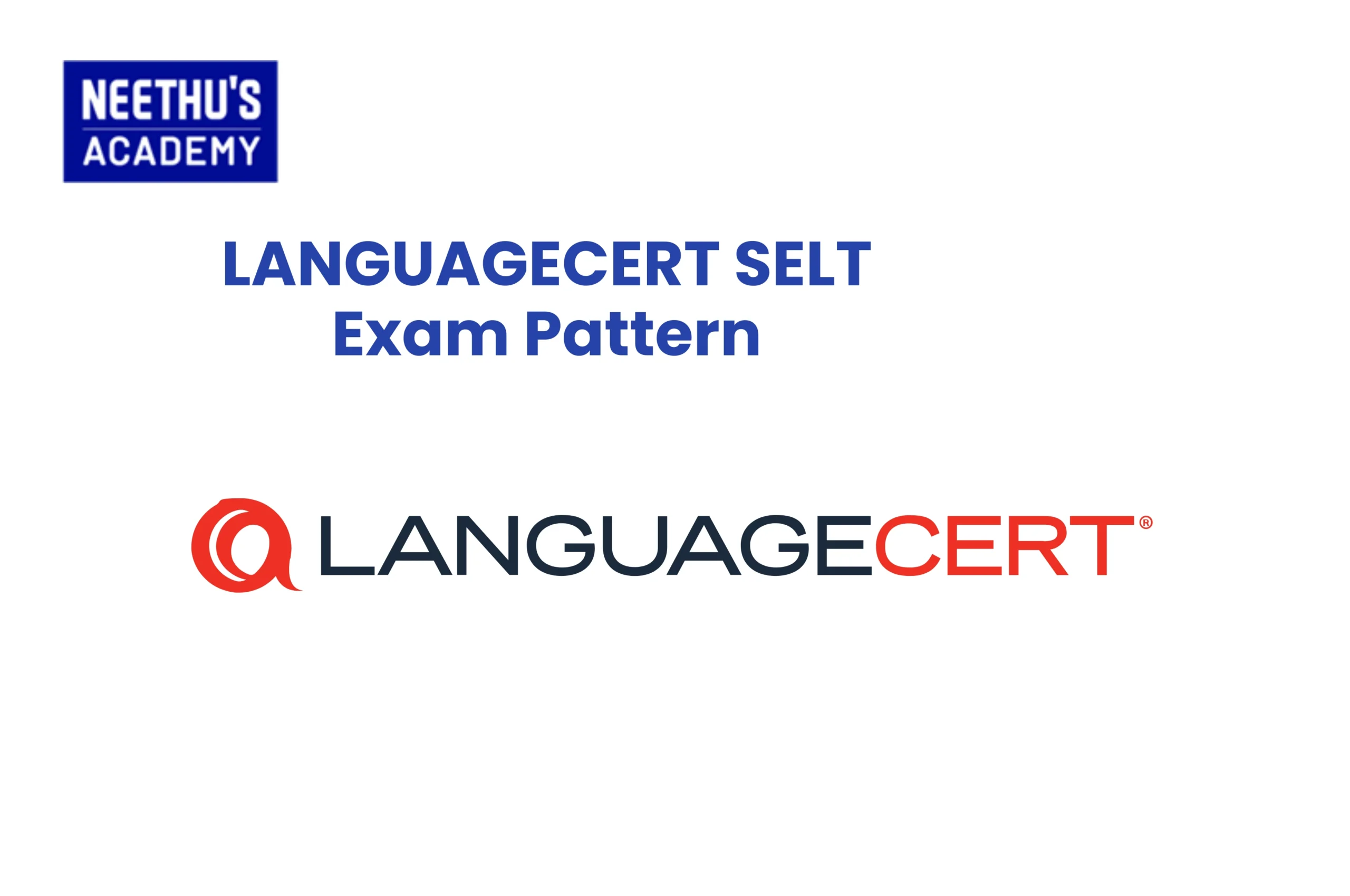Imagine you are running out of time and still have questions to complete! That would be the worst-case scenario while taking a…

Study German in Germany for Beginners: Top Tips and Courses
The German language opens the doors to interesting academic, professional, and cultural opportunities. Being one of the most spoken languages in Europe, German is very fundamental to study and work in Germany. You can learn German anywhere, but there’s no experience quite like immersing yourself in the language by studying in Germany. This all-inclusive guide covers everything you need to know about learning German as a beginner, from pre-departure preparation to making the most of your time in Germany.
Why Learn German in Germany?
Immersive Learning Experience
You will learn German naturally by living in a German-speaking environment. You will get practical lessons by interacting with locals in a grocery store or public transportation.
Practical Application
In Germany, you learn it through living it. Practical applications of new words and grammar increase fluency in less time.
Cultural Immersion
The understanding of language and culture comes hand in hand. While in Germany learning German, you become a part of its rich heritage, traditions, and historical past that defines its people. You will be more personal and professional in this lifetime as well.
Benefits to Your Career
Proficiency in German is an asset in the global job market. Employers often prefer to hire those who are fluent in the language, especially those in the fields of engineering, healthcare, and research.
Increased Self-Confidence
Speaking, understanding, and even thinking in German daily increases your confidence in speaking, understanding, and even thinking in the language, making you feel more integrated into German society.
Who Is This Guide For?
This guide is ideal for:
- Students moving to Germany to pursue education and looking for basic German language to start their educational career.
- Professionals seeking an upgrade in their professional lives through learning German.
- Travel Enthusiasts who seek to connect with locals and travel Germany like a local.
- Absolute Beginners who are looking for a solid base in the German language.
- Families who have relocated to Germany and wish to ease out the settlement process for themselves and their children through basic German skills.
What German level do I need to study in Germany?
Your goals determine the level required:
University: To attend a German-language course of study, you’ll likely need at least B1 or B2 level. Those levels ensure you understand lectures and can join discussions.
For First-Timers: If you enroll in Germany, you will start with A1 or A2 level courses. But you can also prepare at this level in your home country before traveling to Germany to study.
English-Taught Programs: For programs taught in English, German proficiency might not be necessary, but knowing basic German (A1 level) will help you navigate daily life.
For programs like nursing, engineering, or vocational training, higher proficiency (B1 or B2) is often recommended for both study and work placements.
Types of German Language Courses in Germany
Intensive Language Courses
These are designed for quick and focused learning.
There are daily classes conducted on grammar, vocabulary, and conversational language skills.
Some well-known institutions include Goethe-Institut and Humboldt-Institut, which provide highly intense language training courses.
. Language Classes under University
Many universities across Germany have preparatory language training sessions for international students.
In case you wish to change into a degree program following language training, this option suits perfectly.
Private Schools
Private schools, including DeutschAkademie, can provide flexible timing options as well as one-on-one sessions.
They cater to diverse needs, from beginner to advanced levels.
Community-Based Language Classes
Affordable options like Volkshochschule (VHS) provide a casual and friendly learning environment.
These are great for networking with locals and other learners.
Benefits of Learning German in Germany for Beginners
Immersive Environment
Being surrounded by the language accelerates learning. Every interaction, from ordering coffee to asking for directions, becomes a chance to practice.
. Exposure to German Culture
You will live the rich German culture whether it is a festival, food, or historical monuments. This enhances your language learning experience.
Networking Opportunities
German language schools and programs are open to students and professionals from across the globe. This therefore opens up opportunities for cultural exchange as well as lifetime connections.
. Quality of Education
Germany is renowned for its high-quality education system, and its language programs are no exception. You’ll benefit from experienced instructors and structured curricula.
. Affordable Learning Options
Many language courses in Germany are subsidized, making high-quality education accessible to everyone.
How to Learn German in Germany as a Beginner
Enroll in Beginner-Friendly Classes
Look for programs tailored to complete beginners, such as A1 or A2 level courses.
Choose classes that have interactive teaching methods and emphasize practical communication.. Digital Tools and Apps
Take advantage of apps such as Duolingo, Babbel, and Memrise to complement your classroom learning.
Use online resources like German podcasts and YouTube channels for practice.
. Daily Conversations
Talk to locals in everyday conversations.
Attend language exchange meetups or find a language buddy through platforms like Tandem.
Surround Yourself with Media
Listen to German music, watch German movies, and read German children’s books to develop your vocabulary and pronunciation.
Pre-Departure Preparation: German Course in Kerala
Advantage of Joining the Best German Coaching Centre in Kerala
Solid German grammar and vocabulary are required before starting the inductive learning process in Germany.
Institutes like Neethu’s Academy have beginner-friendly programs that work on A1 and A2 levels to ensure the student is ready.
Best German Language Institute in Kochi
If you’re in Kochi, look no further than Neethu’s Academy, the best German language institute for expert guidance.
Courses are tailored to beginners, combining theoretical learning with conversational practice.
The supportive environment builds confidence in speaking and understanding German.
Top Institutions Offering German Language Courses for Beginners in Germany
Goethe-Institut
- Globally recognized for its high-quality language courses.
- Offers programs for all levels, including intensive beginner courses.
Humboldt-Institut
Known for its residential programs, combining language learning with cultural immersion.
Volkshochschule (VHS)
Affordable, community-oriented classes suitable for beginners.
DeutschAkademie
Small class sizes and personalized attention make it a popular choice.
University of Munich’s Language Center
Provides beginner courses tailored to students planning to pursue higher education in Germany.
Tips for Making the Most of Your German Learning Experience
Set Clear Goals
Define your objectives, whether it’s mastering conversational German or preparing for academic purposes.
Follow the Common European Framework of Reference for Languages (CEFR) to monitor your progress.
Discover German Culture while learning
Attend cultural festivals such as Oktoberfest or local markets to get an insight into the way people live.
Visit historical sites to give context to your learning.
Group Study
Interact with other learners to practice speaking and exchange study materials.
Group study encourages accountability and motivation.
Consistency
Spend some time each day reading, writing, speaking, and listening.
Apply the concept of spaced repetition to enable memory to hold the vocabulary.
Remain Positive
Learning a new language is tough but rewarding at times. Enjoy small victories such as ordering food in German, or even having your first conversation.
Conclusion
Learning German in Germany is a great experience for those who are starting out with the language, as they can learn it by immersing in the culture. Preparing from the best German coaching center in Kerala such as Neethu’s Academy would help strengthen the foundation before shifting to an immersive experience in Germany. Top institutions like Goethe-Institut and Volkshochschule offer world-class courses suitable for beginners.
Remember, the key to mastering German is setting clear goals, being consistent, and embracing every opportunity to practice. Whether it’s for academic purposes, professional development, or personal reasons, learning German in Germany will open doors to a brighter future. Start your language-learning adventure today!
Related Blogs
- All Posts
- OET
In case you are immigrating to Canada or looking for higher studies in the French-speaking parts of the nation, then the TCF…
Feeling a bit overwhelmed about the OSCE? You're not alone! The Objective Structured Clinical Examination is a big step in your medical…
Course Enquiry
Latest Posts
- All Posts
- canada
- CBT
- DELF
- DHA
- French
- GENERAL
- German
- Haad
- IELTS
- IQN NEW ZEALAND
- LANGUAGECERT SELT
- MOH
- NCLEX-RN
- NHRA
- OET
- OSCE
- Pearson Vue
- PROMETRIC
- PTE
- TOEFL
- Back
- NCLEX - NGN
- Back
- OET FOR PHYSIOTHERAPIST
- OET FOR PHARMACIST
- OET FOR DOCTORS



Frequently Asked Questions
First, learn a German beginner course. Then, begin by using apps and more frequent conversations.
This course in Germany will range between €200 to €1,500 depending on which program and institute you go with.
Yes, free and low-fee beginner’s German classes are offered in public institutions and volunteer-led programs.
While fluency is perhaps not achievable in 3 months, you can learn enough basic German with intensive practice and courses for daily communications.
